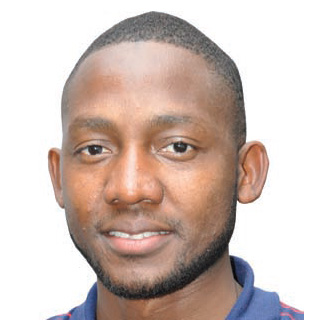Forestry testament of youth
20 October 2015In September the World Forestry Congress in Durban was addressed on environment, forestry and timber issues by three winners of a competition for young speakers from tropical timber supplier countries. One was Charles Batte, 28, a Ugandan medical doctor and founder of Tree Adoption Uganda, a youth-led social enterprise for reforestation, and its TreeCapital Programme. This is based on his presentation.
I fear for our forests’ future and the livelihoods of the least resilient communities dependent on them. I’m uncertain for the prospects of Florence Biddemu – my mother - a peasant farmer in Katiiti Village, who is no longer sure on when to plant her corn because of the changing seasons. For her sake and that of many threatened communities I urge youths around the world to take proactive action against climate change.
Promote afforestation and sustainable forest management, discourage deforestation, and conserve the few remaining natural forest ecosystems as part of integrated land-use. Planting a single tree in your backyard may seem so small an action. However, each tree we plant will contribute to future forests. We need to educate communities about the importance of forests; the sustainable industries they can support and the environmentally sound products they can generate. We need to advocate for emissions reduction and harness greener sources of energy. Protect our ecosystem for all societies.
But how can we engage and inculcate environmental responsibility among youth?
I designed the TreeCapital programme for this purpose – to leverage climate change mitigation activities like planting trees and to empower local people to provide start up capital for young unemployed to set up AgriBusinesses and engage in integrated land use, including sustainable forestry for timber production. Nassanga is 20, is unemployed. She grew up in an environment characterised by poverty, unemployment and poor education and, at just 17, she became a single mother. Our forestry programme has changed her life.
We provided her basic agribusiness training, set up a tree nursery with her and asked her to look after the trees until they become saplings.
Through corporate social responsibility partnership with environmentally responsible companies we are able to buy the trees of such projects back, including those grown for sustainable timber production. We then encourage people to use the accrued income as start up capital for their own business.
Next with Nassanga, we planted fruit trees around her farm in a reforestation drive, to act as windbreakers, supplement her children’s nutrition, provide income, improve soil fertility and help abate climate change.
Our TreeCapital programme will uplift a generation of climate conscious entrepreneurial leaders and reinforce the importance of planting trees in building resilience.
As young people we need to tap into our immense creativity and come up with innovations that can ensure a sustainable future for our forests. But how can we do that without support? We ask you, private sector, the corporate world and government, to be financial enablers for our innovations. Let us proactively contribute to sustainable development goals. Invest in institutions that provide mentorship, capacity building, training, and innovative education. We need you to integrate carbon audits into your value chains, have a budget for their offset, and support our initiatives.
Is that too much to ask?
Today Nassanga has a smile on her face because of what a tree-planting project has brought her. Through forestry education and proactive support to build capacity of more youths engaging in this space, we can leave millions of children with a smile like Nassanga’s and we can ensure a sustainable future for our forests.
